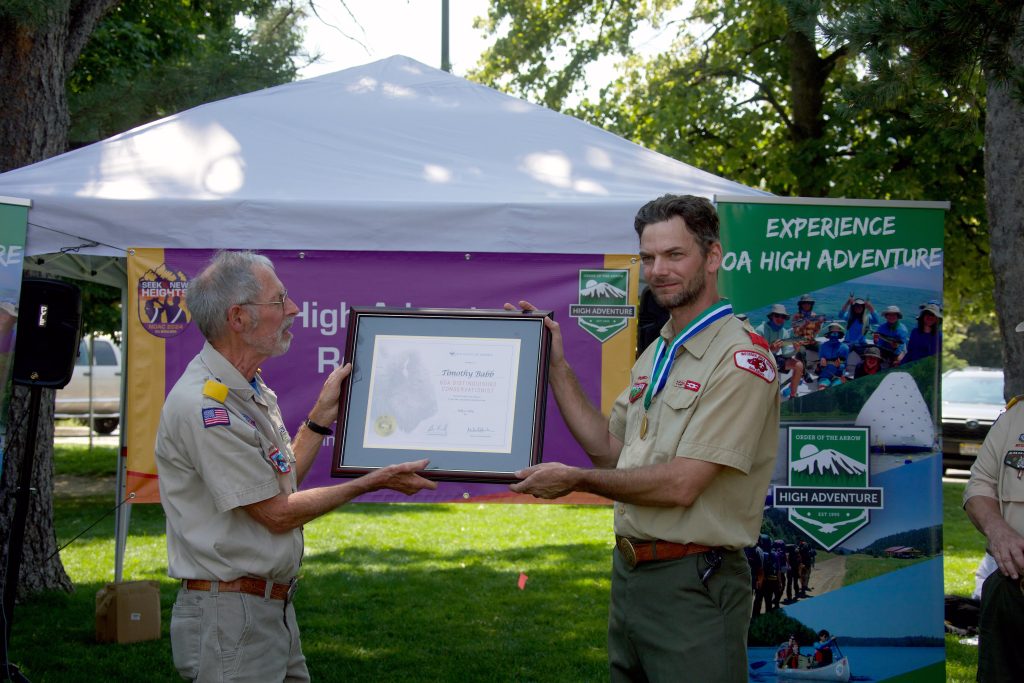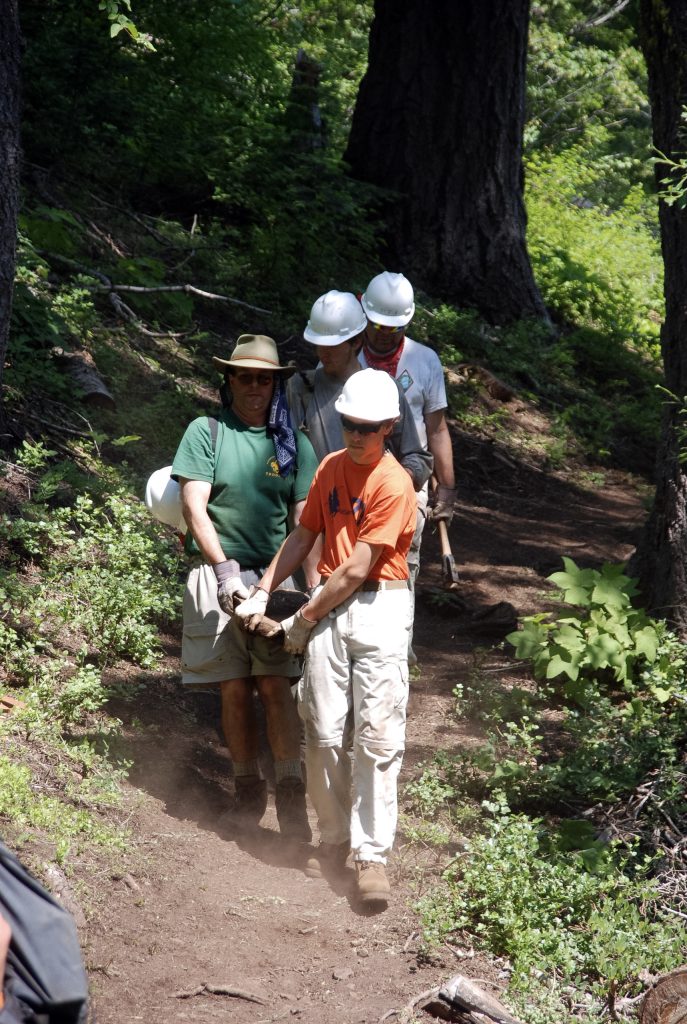Some of earliest Scouting memories for Tim Babb, the latest recipient of the Distinguished Conservationist Award, involve going on camping trips with his Scoutmaster, Jeff Jones. Jones, an inspector who worked for the Arkansas Highway Department, would fill their drives to campouts with discussions about his job that would inspire the young Babb to a lifetime of conservation.
“He would always talk about things that came up when he would inspect bridges,” Babb recalled, “and he would relate them to conservation.”
Little did Babb know that, years later, he would be honored with one of Scouting America’s rarest awards, the Distinguished Conservationist Award. Babb received the award during NOAC at a special event in the ACES Village on Wednesday, July 31.
“Sometimes, you run into things in your life, those moments fit into your skill set,” Babb explained. “Those conversations were where the fire was lit.”
The Distinguished Conservationist Award, formerly known as the William T. Hornaday Gold Medal, was created in 1975 to honor adult Scouters who dedicated a lifetime of service to conservation work. Scouters must have at least 20 years of service at the regional, national, or international level to be considered for the Distinguished Conservation Award. The focus of the award nomination is educating and inspiring young people to excel in conservation, natural resources management and environmental improvement. The award is one of Scouting America’s rarest awards, with no more than 75 awards presented since 1975.
Of Babb’s Scouting accolades, which includes the OA Distinguished Service Award, he is most proud of this award.
“To be honored with the Distinguished Conservationist Award really hits home,” Babb said. “My life in Scouting has been dedicated to conservation.”

While Babb’s interest in conservation work was ignited with his Scoutmaster’s conversations, he first started conservation work as the Conservation Director at Camp Orr from 1995 to 1997. In 1998, he served as a 28-day OA Trail Crew foreman at Philmont Scout Ranch.
The next year, he would go up to Northern Tier High Adventure Base to start the OA Wilderness Voyage program, where he would spend multiple summers. “Going up to Northern Tier was a perfect fit,” Babb explained. “It was trail work and an OA experience.”

Babb’s experience then led him to serve on the Instructor Corps at 2008’s ArrowCorps5 project, the largest service project in the OA’s history, where he taught Arrowmen about conservation work at five national forests throughout the country. Babb also worked directly on the Bridger-Teton National Forest project, which featured one trail construction project and two fence removal projects.
“Seeing the end result of something you spent three years on was incredibly rewarding,” Babb recalled. “Being on the Instructor Corps and traveling to five different states over five different weeks was incredible! I got to see the most beautiful forests in the country and make some of my closest friends.”
In 2011, Babb worked on the OA’s SummitCorps project to help get the Summit Bechtel Family National Scout Reserve ready to open at the 2013 National Scout Jamboree. Babb would also play a key role on the Arrowmen for Conservation, Education, and Sustainability (ACES) staff at multiple NOACs, teaching Scouts about conservation and sustainability. ACES has grown over the years because of his instrumental efforts.
“When we started, it was just four of us teaching classes and doing a service project,” Babb explained. “Now we have a 75-person staff, and teaching about conservation is some of the most important work I’ve done over my life. The impact that I make through creating educational experiences will reach thousands of Scouts, far greater than as a crew leader.”
Still, there’s something to be said for service. The best way to form new friendships, Babb shared, is through service.
“I’ve never found a mechanism that’s more effective at bringing Scouts together than service,” Babb remarked. “It’s only when you bring Scouts together in service that you create life changing experiences and build character.”
Babb’s conservation and service work over the years has brought many thousands of Scouts together, and he hopes that these relationships last far beyond the service experience.
“When my Scoutmaster said to leave it better than you found it, he wasn’t just talking about the campsite,” Babb shared. “It also applies to your relationships with people. If we can leave the relationship better than when we found it, that’s a heck of a goal.”


